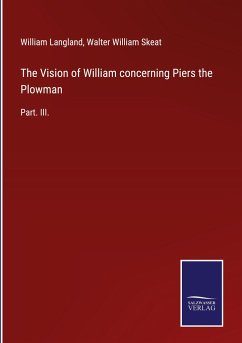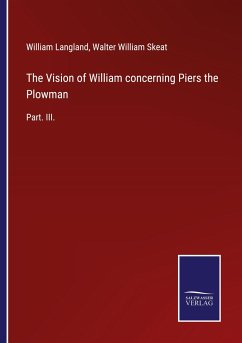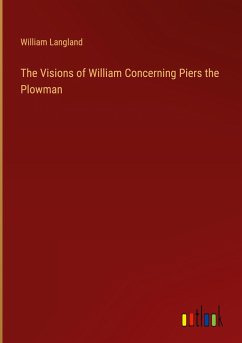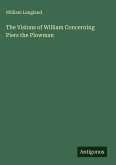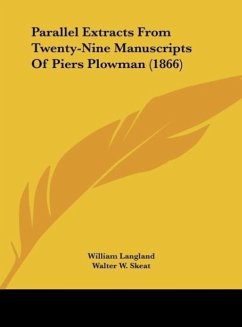The Vision of William Concerning Piers Plowman is a book written by William Langland in the 14th century. It is a religious allegory that follows the dream of a man named Will, who goes on a journey to find the true meaning of life. Along the way, he encounters various characters, including Piers Plowman, who represents the ideal Christian life. The book also includes three additional texts: Vita de Dowel, Dobet, et Dobest, which explores the virtues of charity, good deeds, and best practice; and Richard the Redeles, which is a satirical poem about a corrupt priest. This 1884 edition of the book includes an introduction and notes by Walter W. Skeat, a renowned scholar of Middle English literature.This scarce antiquarian book is a facsimile reprint of the old original and may contain some imperfections such as library marks and notations. Because we believe this work is culturally important, we have made it available as part of our commitment for protecting, preserving, and promoting the world's literature in affordable, high quality, modern editions, that are true to their original work.
Bitte wählen Sie Ihr Anliegen aus.
Rechnungen
Retourenschein anfordern
Bestellstatus
Storno



